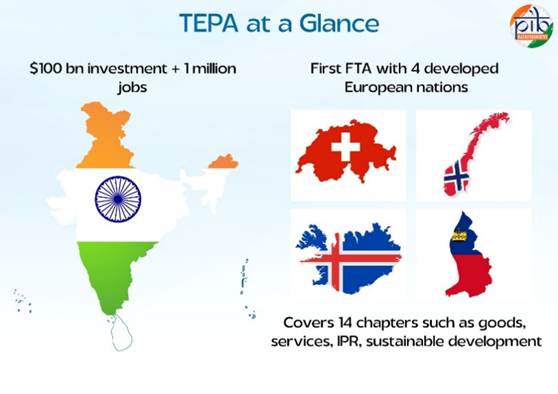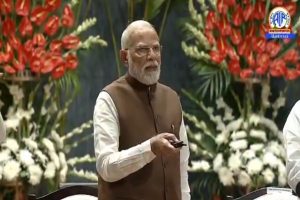The India-European Free Trade Association (EFTA) Trade and Economic Partnership Agreement which came into effect from first of this month, is a defining moment in country’s external trade policy. This is country’s first Free Trade Agreement with four developed European nations namely Switzerland, Norway, Iceland, and Liechtenstein. At its core, the agreement envisions unlocking 100 billion US dollars worth of investments and creating 10 lakh direct jobs in India over the next fifteen years, marking it as one of the most forward-looking trade partnerships in the country’s economic history.
The agreement expands market access, drives manufacturing and innovation, and strengthens cooperation in technology and sustainability. Under the pact, EFTA is offering tariff concessions on over 92 percent of tariff lines, covering more than 99 percent of India’s exports, including non-agricultural goods and processed agricultural products. EFTA’s market access covers 100 percent of non-agri products and tariff concessions on Processed Agricultural Products. India has extended access on 82.7 percent of tariff lines, accounting for more than 95 percent of EFTA exports. The agreement also offers binding commitment of 100 billion US dollar investment in India in the next 15 years. It will also facilitate generation of one million direct jobs through such investment. For India, TEPA is more than a trade pact, it is an instrument of strategic trust with like-minded economies that value transparency, rule-based trade, and innovation.
















